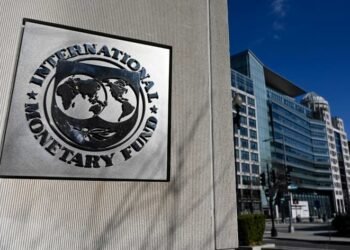In the tumultuous seas of Ghana’s financial markets, April brought forth a significant development in the Fixed Income market, as it witnessed a 10% decline in traded volumes. This downturn, revealed in the latest reports, carries substantial implications for investors, market participants, and the broader economic landscape.
The Fixed Income market, often regarded as a haven for stability and predictable returns, faced a challenging period in April. The 10% decline in traded volumes marked a notable deviation from the expected course, prompting closer scrutiny and analysis.
Despite this decline, the market still saw a substantial increase compared to the same period last year, indicating both growth and short-term fluctuations within the sector.
In April 2024, the total traded volume for April amounted to 11.34 billion, marking a remarkable 98.47% surge from the 5.71 billion recorded in April of the previous year. This impressive year-over-year growth reflects the market’s resilience and potential for expansion over time.
On a year-to-date basis, the Fixed Income market recorded a traded volume of 51.88 billion, demonstrating a substantial 70.27% increase from the same period last year. This robust growth suggests a positive trajectory for the market in the long term, despite short-term fluctuations.
Delving deeper into the composition of market activity, long-term government debt securities contributed 30.10% to the overall volume, indicating significant investor interest in these instruments. Short-term government instruments accounted for 69.51% of the market activity, reflecting their importance in providing liquidity and meeting short-term financing needs.
Corporate securities, while making up a smaller portion at 0.39%, still play a role in diversifying investment portfolios and contributing to overall market dynamics.
The decline In traded volumes in April could be attributed to various factors, including market sentiment, economic conditions, and regulatory changes. Economic indicators such as inflation rates, GDP growth, and central bank policies can influence investor behavior and market activity.
Moreover, changes in interest rates, both domestically and globally, can impact the attractiveness of fixed-income securities relative to other investment options.
Despite the decline in traded volumes for April, the overall trend remains positive, with significant year-over-year growth indicating the market’s resilience and potential for expansion. Investors should view short-term fluctuations in traded volumes within the broader context of market dynamics and economic conditions.
The Ramifications for Investors, Market Participants
The decline in traded volumes within the Fixed Income market in April 2024 carries several implications for investors, market participants, and the broader financial sector.
Firstly, a decrease in traded volumes may signal a reduction in market liquidity, making it more challenging for investors to buy or sell securities without significantly impacting prices.
Meanwhile, reduced liquidity can lead to wider bid-ask spreads and increased transaction costs, potentially deterring market participation and hindering efficient price discovery.
Furthermore, the decline in traded volumes could reflect changing investor sentiment or risk appetites. A decrease in trading activity may suggest a cautious approach by investors amid uncertainties in the economic or geopolitical environment.
As investors seek to preserve capital and mitigate risks, they may allocate funds to safer assets or adopt defensive investment strategies, impacting market dynamics and asset valuations.
The decline In traded volumes also raises questions about market efficiency and transparency. Lower trading activity may limit the availability of market data and decrease the frequency of price updates, potentially impairing investors’ ability to make informed decisions.
Market participants may face challenges in accurately assessing asset values and risk exposures, leading to increased uncertainty and volatility.
Moreover, the implications of the decline in traded volumes extend beyond the Fixed Income market itself and can affect broader financial markets and the economy. Fixed-income securities play a crucial role in financing government debt, corporate investment, and infrastructure projects.
A decrease In trading activity may constrain access to capital and financing, potentially impacting economic growth and development initiatives.
Additionally, the Fixed Income market serves as a barometer for investor sentiment and market confidence. Changes in traded volumes may reflect shifts in investor perceptions of risk and return, influencing capital flows and investment decisions across asset classes.
A decline in trading activity within the Fixed Income market could have spillover effects on equity markets, currency markets, and other financial instruments, amplifying market volatility and uncertainty.
Policymakers and regulators play a crucial role in fostering market transparency, enhancing investor confidence, and promoting financial stability amidst evolving market dynamics. By addressing challenges related to liquidity, transparency, and investor confidence, stakeholders can support the long-term growth and resilience of the Fixed Income market and the broader financial system.
READ ALSO: A Frosty Reception To Putin’s Return























